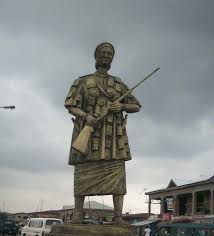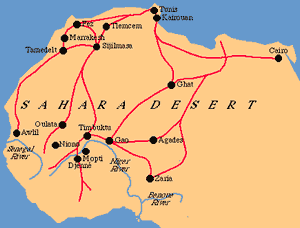Yaa Asantewaa: The Grandma Who Checked the British

Yaa Asantewaa: The Grandma Who Checked the British
Discover the fearless story of Yaa Asantewaa, the Ashanti queen mother who led the 1900 War of the Golden Stool. Learn how her courage against British colonial forces made her a lasting symbol of African resistance, women’s leadership, and cultural pride.
If Marvel ever runs out of superheroes, they don’t need to invent anyone new. African history is full of legends who make comic book characters look like amateurs. And right there in the hall of fame is Yaa Asantewaa, the Queen Mother of Ejisu in the Ashanti Empire (modern-day Ghana). She wasn’t just royalty; she was the kind of leader who could silence a room, inspire warriors, and send colonisers into panic mode. Yaa Asantewaa’s story isn’t just history; it’s the ultimate clap back to oppression.
The Setup: British Audacity at Its Peak
The year was 1900. Colonialism was in full swing, and the British were busy carving up Africa like it was a buffet. The Ashanti Empire had already fought several wars with them, but the British wanted total control. Now, the Ashanti weren’t just “some tribe.” They were an organised, wealthy, and powerful kingdom with centuries of history. They had trade networks, political systems, and spiritual traditions that gave them backbone. And at the centre of that identity was the Golden Stool. Let me break it down: the Golden Stool wasn’t a fancy chair you’d find in a palace showroom. It was the living symbol of the Ashanti nation. Legend says it descended from the heavens, carrying the soul of the entire Ashanti people. To demand it was basically like someone walking into your house and saying: “Hey, give me your phone, password, and bank details, also I will be needing your ID cards” That’s how offensive the British demand was, but since they came with weapons, you can guess the source of the audacity.
Sir Frederick Hodgson, the British Governor at the time, stood before the Ashanti chiefs and declared that he wanted to sit on the Golden Stool. His words were so reckless they would’ve been a TikTok gone wrong. The chiefs were outraged but hesitant, because let’s be real, British guns were no joke. Yaa Asantewaa was like Uhn? But…
Who Was Yaa Asantewaa?
Born around 1840, Yaa Asantewaa grew up in a time when the Ashanti Empire was dealing with both internal struggles and external threats. As Queen Mother of Ejisu, she wasn’t just a ceremonial figure. In Ashanti tradition, the Queen Mother had enormous influence; she could appoint chiefs, advise on governance, and speak for the people. Yaa Asantewaa was respected for her wisdom, boldness, and sense of justice. But she wasn’t just sitting in palaces. She had lived through wars, seen the Ashanti resilience, and knew the weight of cultural identity. By the time Hodgson made his infamous Golden Stool speech, Yaa Asantewaa had already earned her stripes as a formidable leader.
The Speech That Changed Everything
So picture this: Hodgson makes his arrogant demand. The chiefs grumble in anger but hesitate to act. The British had superior weapons, and some leaders were already tired of endless wars. Then Yaa Asantewaa stood up. And she dropped what might be one of the most gangster speeches in African history. In essence, she said: “If you men won’t fight for our people, then we, the women, will. I will call upon
my fellow women, and together, we will fight until the last of us falls in battle.” That speech flipped the script. Imagine the shock of an elder woman calling out chiefs, shaming them for hesitation, and boldly volunteering to lead. It was the wake-up call the Ashantis needed.
The War of the Golden Stool
What followed was no small skirmish. The War of the Golden Stool (March–September 1900) was a full-scale rebellion. Yaa Asantewaa rallied thousands of Ashanti warriors to defend their heritage.
• Tactics. The Ashanti used guerrilla warfare, ambushes, and sieges. They trapped British soldiers inside forts and cut off supply lines. For months, they frustrated one of the world’s biggest empires.
• Symbolism. Every battle wasn’t just about land; it was about dignity. Protecting the Golden Stool was protecting the soul of the Ashanti Empire.
• Leadership. Yaa Asantewaa didn’t just give speeches and sit back. She actively strategised and directed fighters. Imagine a grandmother with the presence of a general, that was her.
The British, shocked by the resistance, poured in reinforcements and eventually broke through. By September 1900, Yaa Asantewaa was captured. She was exiled to the Seychelles, where she lived until she died in 1921. The Ashanti lost the battle. But Yaa Asantewaa had already won something bigger: a legacy.
Why Yaa Asantewaa Still Matters
More than a century later, Yaa Asantewaa’s name still echoes. Why? Because her story checks so many boxes of timeless relevance:
1. Women in Leadership. At a time when both colonisers underestimated women, Yaa Asantewaa shattered the narrative. She proved that leadership isn’t about gender, it’s about guts.
2. Cultural Resistance. She wasn’t fighting for ego; she was fighting for identity. Her resistance reminds us that culture and heritage are worth protecting, even against impossible odds.
3. Symbol of Courage. Today, Yaa Asantewaa is celebrated in Ghana and beyond. Schools, cultural centres, and even international feminist movements use her story as inspiration. She has become a global icon of defiance and resilience.
4. Lessons for Today. Think about it: we live in a world where people often give up when things get tough. Yaa Asantewaa’s spirit says, “Don’t fold, fight.” Whether it’s personal struggles, societal injustice, or cultural erasure, her example tells us that resistance matters.
The Legacy in Pop Culture and Memory
If you go to Ghana today, you’ll find statues, festivals, and institutions named after Yaa Asantewaa. There’s the Yaa Asantewaa Girls’ Secondary School, a symbol of education and empowerment for young women. Her story is also retold in plays, poems, and even music. She’s not just a historical figure; she’s a cultural icon. The kind whose name makes people sit up straighter when mentioned. If Wakanda had a real-life ancestor, Yaa Asantewaa would be on the throne.
The Takeaway: Fear Grandmas, Respect Queens
Yaa Asantewaa’s story is living proof that resistance doesn’t always come from where you expect. Sometimes, the fiercest warrior is the grandmother who refuses to let her people bow. She didn’t have vibranium, a cape, or an army of CGI warriors. What she had was courage, conviction, and the fire to stand up when everyone else was sitting down. So when you think about superheroes, don’t just picture capes and masks. Picture Yaa Asantewaa, draped in traditional cloth, holding her ground against an empire. She may not have defeated the British on the battlefield, but she checked them in history. And that, in the long run, is the bigger victory.


